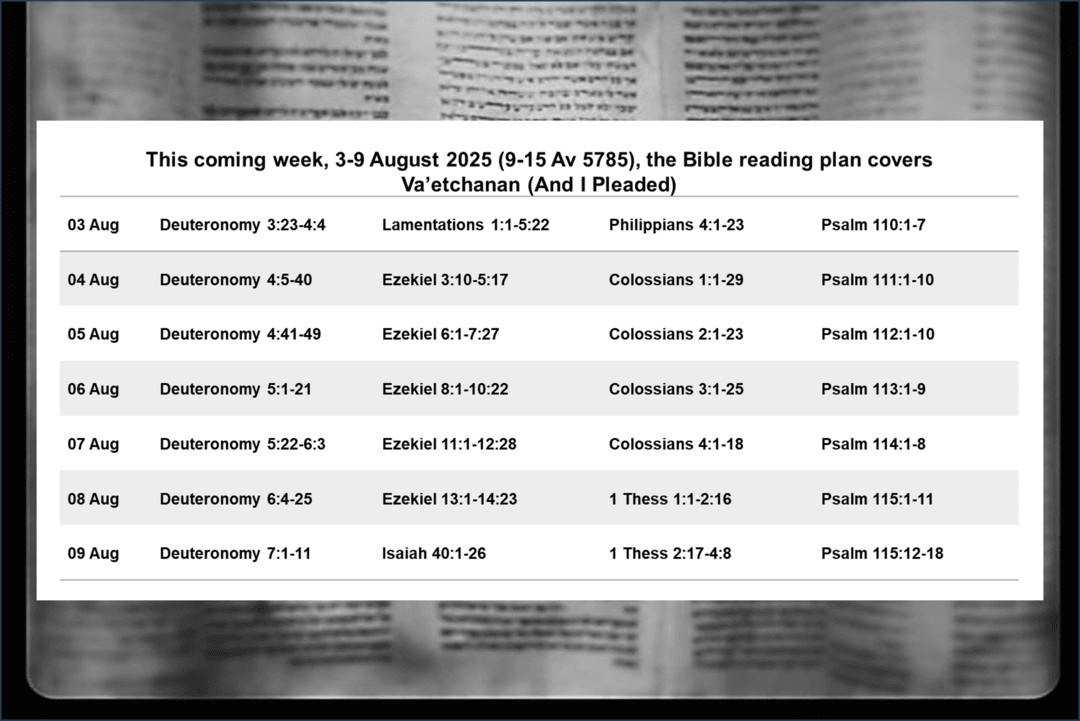Watch
Events
Articles
Market
More
This coming week, 3-9 August 2025 (9-15 Av 5785), the Bible reading plan covers Va’etchanan (And I Pleaded).
https://thebarkingfox.com/2025..../08/01/weekly-bible-




This coming week, 3-9 August 2025 (9-15 Av 5785), the Bible reading plan covers Va’etchanan (And I Pleaded).
https://thebarkingfox.com/2025..../08/01/weekly-bible-



